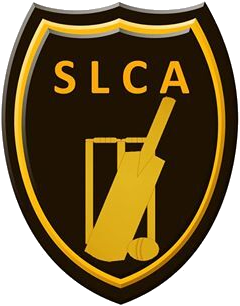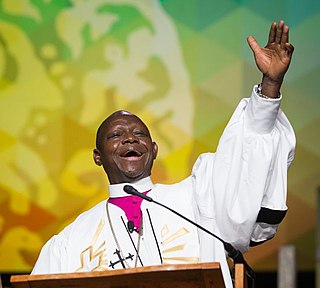Related Research Articles
Methodism, also called the Methodist movement, is a group of historically related denominations of Protestant Christianity whose origins, doctrine and practice derive from the life and teachings of John Wesley. George Whitefield and John's brother Charles Wesley were also significant early leaders in the movement. They were named Methodists for "the methodical way in which they carried out their Christian faith". Methodism originated as a revival movement within Anglicanism originating out of the Church of England in the 18th century and became a separate denomination after Wesley's death. The movement spread throughout the British Empire, the United States and beyond because of vigorous missionary work, and today has about 80 million adherents worldwide.

Sierra Leone, officially the Republic of Sierra Leone, is a country on the southwest coast of West Africa. It shares its southeastern border with Liberia, and the northern half of the nation is surrounded by Guinea. Covering a total area of 71,740 km2 (27,699 sq mi), Sierra Leone has a tropical climate, with diverse environments ranging from savanna to rainforests. The country has a population of 7,092,113 as of the 2015 census. Freetown is the capital and largest city. The country is divided into five administrative regions, which are subdivided into 16 districts.
Sierra Leone first became inhabited by indigenous African peoples at least 2,500 years ago. The Limba were the first tribe known to inhabit Sierra Leone. The dense tropical rainforest partially isolated the region from other West African cultures, and it became a refuge for peoples escaping violence and jihads. Sierra Leone was named by Portuguese explorer Pedro de Sintra, who mapped the region in 1462. The Freetown estuary provided a good natural harbour for ships to shelter and replenish drinking water, and gained more international attention as coastal and trans-Atlantic trade supplanted trans-Saharan trade.

Freetown is the capital and largest city of Sierra Leone. It is a major port city on the Atlantic Ocean and is located in the Western Area of the country. Freetown is Sierra Leone's major urban, economic, financial, cultural, educational and political centre, as it is the seat of the Government of Sierra Leone. The population of Freetown was 1,055,964 at the 2015 census.
The Wesleyan Church, also known as the Wesleyan Methodist Church and Wesleyan Holiness Church depending on the region, is a Methodist Christian denomination in the United States, Canada, the United Kingdom, South Africa, Namibia, Sierra Leone, Liberia, Indonesia, and Australia. The church is aligned with the Wesleyan-Holiness movement and has roots in the teachings of John Wesley. It adheres to Wesleyan-Arminian doctrine and is a member of the World Methodist Council.

Bo, also commonly referred to as Bo Town, is the second largest city in Sierra Leone by population and the largest city in the Southern Province. Bo is the capital and administrative centre of Bo District. The city of Bo has a population of 233,684 based on 2017 estimate. Bo is an urban centre, and lies approximately 160 miles (250 km) east-southeast of Freetown, and about 40 miles (71 km) to Kenema. Bo is the leading financial, educational and economic centre of southern Sierra Leone.

Ernest Bai Koroma is a Sierra Leonean politician who served as the fourth President of Sierra Leone from 17 September 2007 to 4 April 2018.
Kissy is a neighbourhood located on the eastern end of the capital, Freetown, in Sierra Leone. It is known for its various health services, including the United Methodist Church Health and Maternity ward, as well as Kissy Mental Hospital. Additionally, Kissy is home to over 500 Liberian refugees. In Kissy Village, you can find the Kissy Road Church of the Holy Trinity, which should not be confused with the Church of the Holy Trinity on Kissy Road. The latter was burned down by RUF rebel forces in 1999, but a restoration plan was implemented, successfully restoring the building. Moreover, the church on Kissy Road operated a school.
Boston King was a former American slave and Black Loyalist, who gained freedom from the British and settled in Nova Scotia after the American Revolutionary War. He later immigrated to Sierra Leone, where he helped found Freetown and became the first Methodist missionary to African indigenous people.
Moses "Daddy Moses" Wilkinson or "Old Moses" was an American Wesleyan Methodist preacher and Black Loyalist. His ministry combined Old Testament divination with African religious traditions such as conjuring and sorcery. He gained freedom from slavery in Virginia during the American Revolutionary War and was a Wesleyan Methodist preacher in New York and Nova Scotia. In 1791, he migrated to Sierra Leone, preaching alongside ministers Boston King and Henry Beverhout. There, he established the first Methodist church in Settler Town and survived a rebellion in 1800.

Sierra Leone Cricket Association is the official governing body of cricket in Sierra Leone. Its headquarters is currently located in Brookfields National Stadium. The association represents Sierra Leone at the International Cricket Council (ICC) and has been an associate member of the ICC since 2002. Additionally, it is a member of the African Cricket Association.

John K. Yambasu was a Sierra Leonean Bishop of the United Methodist Church. He was elected Bishop in 2008 and became one of Sierra Leone's "most illustrious religious personalities." In 2019 he was instrumental in negotiating a proposed agreement to resolve conflicts in the worldwide church, but because of COVID-19 the proposal had not yet been approved before his death. He died in a road accident on August 16, 2020.
The Evangelical College of Theology (TECT) is a Christian educational establishment in Sierra Leone. The college offers certificate, diplomas, bachelor degree and Master degree programs. Enrolment for the 2017-18school year was 800 students. The college operates at four locations: the main campus in Jui, the Freetown Extension site, and the Makeni and Bo Distance Education sites.

Sierra Leone is officially a secular state, although Islam and Christianity are the two main and dominant religions in the country. The constitution of Sierra Leone provides for freedom of religion and the Sierra Leone Government generally protects it. The Sierra Leone Government is constitutionally forbidden from establishing a state religion, though Muslim and Christian prayers are usually held in the country at the beginning of major political occasions, including presidential inauguration.
The following is a timeline of the history of the city of Freetown, Sierra Leone.

The Sierra Leone Creole people are an ethnic group of Sierra Leone. The Sierra Leone Creole people are descendants of freed African-American, Afro-Caribbean, and Liberated African slaves who settled in the Western Area of Sierra Leone between 1787 and about 1885. The colony was established by the British, supported by abolitionists, under the Sierra Leone Company as a place for freedmen. The settlers called their new settlement Freetown. Today, the Sierra Leone Creoles are 1.2 percent of the population of Sierra Leone.

Orishatukeh Faduma was an Nigerian-American Christian missionary and educator who was also an advocate for African culture. He contributed to laying the foundation for the future development of African studies.
George Warren was a British Methodist missionary. He was the first Wesleyan Methodist in Africa and went to Sierra Leone in Nov 1811.
Edward Mayfield Boyle was a Sierra Leone Creole medical doctor who attended Harvard Medical School. Boyle, was one of the first West Africans to attend Howard University College of Medicine and was the maternal uncle of Edna Elliott-Horton, who was possibly the first West African woman to graduate from Howard University.